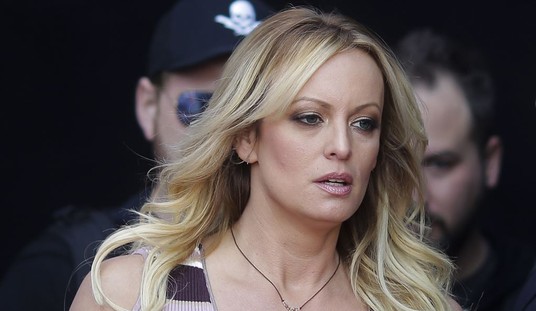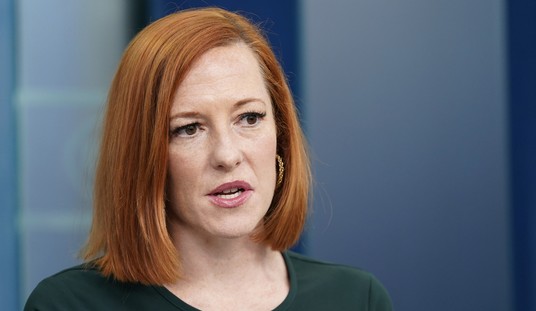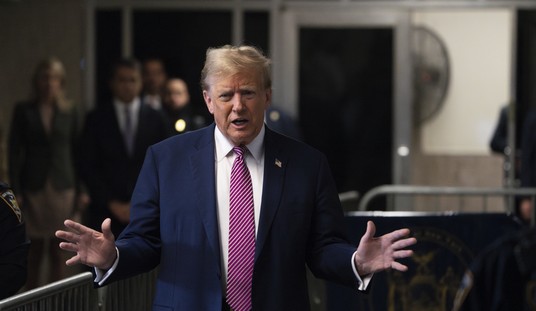The governor of Oregon, John Kitzhaber, announced last week that he would not allow any more executions in his state during his time in office.
Kitzhaber, a Democrat, gave five reasons for his decision. My response follows each one.
1. "I refuse to be part of this compromised and inequitable system any longer."
This has become one of the most frequently offered reasons for objecting to capital punishment -- that because the system is not equitable, no murderer should be put to death.
This is a reason that is devoid of reason. If a system is not equitable, you don't end the system, you try to end what is not equitable. This is classic left-wing thinking -- destroy what is good if it is imperfect. Documentary-maker Michael Moore was recently on CNN with Anderson Cooper and provided a perfect example of this way of thinking.
Moore: "2011 capitalism is an evil system set up to benefit the few at the expense of the many."
Cooper: "So, what system do you want?"
Moore: "Well, there's no system right now that exists. We're going to create that system."
The utopian streak that is an essential part of the left-wing mind is puerile and destructive: "If it isn't perfect, eliminate it."
2. "I do not believe that those executions (the two that the governor allowed) made us safer."
We all acknowledge that two executions do not make us safer (though they do make it safer for prison guards and for other inmates). Who ever said two executions would make us safer? Overwhelmingly, the reason people give for supporting the death penalty is justice. It is indescribably unjust to allow everyone who deliberately takes a human life to keep his own.
Recommended
But if you want to talk safety, then yes, we who support the death penalty are certain that, applied with any consistency, it is a deterrent. The late sociologist Ernest van den Haag had an interesting thought experiment. Suppose that murders committed on Mondays, Wednesdays and Fridays carried a death sentence, while those committed on the other days were punishable by a prison sentence. On which days do you suppose more murders would be committed?
The notion that parking tickets deter illegal parking but that death does not deter murder is truly irrational. It shows what happens when people put ideology over common sense.
3. "Certainly I don't believe (the executions of murderers) made us more noble as a society."
Why is it noble to keep all murderers alive? Was Israel less noble for executing Adolf Eichmann, the architect of the Holocaust? When two men enter the home of a family of four; rape the wife and two young daughters; beat all four nearly to death, leaving them in the agony of crushed bones and skulls; and then tie them up and burn the three females to death, why is it "noble" to keep the men who did that alive?
4. Oregon has an "unworkable system that fails to meet basic standards of justice."
Opponents of the death penalty make it virtually impossible to execute murderers. They then lament how long and laborious the effort is to execute a murderer.
5. "... And I simply cannot participate in something I believe morally wrong."
Opponents of the death penalty simply assert the death penalty is immoral. That is their prerogative. But "morally wrong" in this context means nothing more than "I don't like it." Indeed, as reported in the The New York Times, "Asked with whom (Kitzhaber) had consulted, he said, 'Mostly myself.'"
Kitzhaber's moratorium delays the execution of a murderer who had raped and brutally beaten to death a woman named Mary Archer. Needless to say, the family and friends of Mary Archer disagree with the governor's action.
"We are just plain devastated," said the man who had been Mary Archer's husband. "This is such a miscarriage of justice."
Indeed it is. And worse. Societies that allow all murderers to live have lost some of their hunger for justice and certainly lost their hatred of evil. They also cheapen the crime of murder. Punishment is society's way of communicating how serious it views a crime, and there is all the difference in the world between the death penalty and life (not to mention less time) in prison.
When all murderers are allowed to live, the evil exult while the victims weep. Why is that noble?

























Join the conversation as a VIP Member